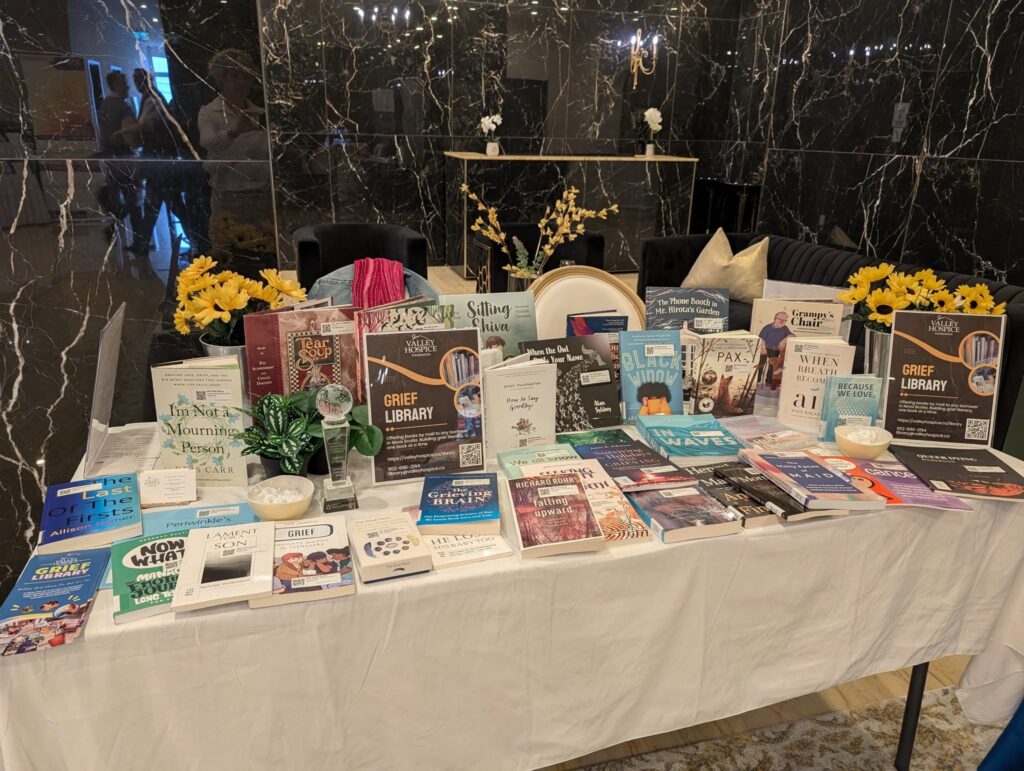What a delight to be an exhibitor at the NSHPCA Conference. Its theme was The cultural implications of death, dying, and grief. As an exhibitor, I didn’t get to many sessions, but Dr. Amit Arya‘s opening keynote Equity at the Heart of Care challenged the audience to look carefully for forms of racism. In Arya’s words, racism = racial prejudice + power and we must talk about it in Canada. Overt racism is easier to spot, but covert racism – the “socially acceptable” opinions and biases that we all carry – is widespread, insidious and arguably more damaging and harder to eradicate. Dr. Arya’s talk reminded me of Dr. Naheed Dosani’s work with vulnerably housed and homeless patients in Toronto, and his observation that homelessness is itself a life-limiting illness, a terminal diagnosis. The solution in both cases, to greatly oversimplify, is equity: treating people differently according to their needs. Not equality, equity.
Ending the day was Mal Rose’s compelling presentation Grieving While Ungrievable. Knowledge (what a community allows to be known) and affect (what a community “should” feel) shape us. Oversimplifying once again, we develop inherent beliefs about how people should act, look, or be in the world; those who don’t conform are less valued and thus ungrievable. We need to take a hard look at how this affects our grief care, with this particular lens focused on the 2SLGBTQ+ community. Mal challenged us to view grief as not only subversive, but also fundamental to humanity.
What does one little library do about such wicked problems? It’s made me think a lot about our collection and working to ensure that BIPOC, culturally diverse, disabled, and 2SLGBTQ+ perspectives are included in what we do. To think about the vulnerable and unhoused in our area and ponder how to serve those without a mailing address. To use my privilege to be a better advocate.
To welcome suggestions for change as the gifts they are. To listen fully with an open mind and heart. To work for change and to challenge overt, and the more prevalent covert, “isms.” We need DEI (Diversity, Equity, Inclusion) more than ever to overcome the white supremacy and heteronormativity which creep into North American history, politics, education, health care, and…and…and…all systems where power means control. Deep thoughts from the library table in Halifax.
With love,
~Terri

